At the center of TdC's philosophy was the belief that the human species is evolving spiritually, progressing from a simple faith to higher and higher forms of consciousness, including a consciousness of God, and culminating in the ultimate understanding of humankind's place and purpose in the universe.
- Teilhard de Chardin viewed Christ as the ultimate point of convergence for all of creation’s evolutionary journey — the Omega Point. His Christology is highly metaphysical, rooted in an esoteric understanding of cosmic evolution.
- Process theology, however, does not necessarily view Christ as the sole focus of cosmic evolution but as a necessary and key participant in the unfolding divine process. In Whitehead’s framework, Christ (or the Christ Principle) is seen as a significant aspect of God's interaction with the world rather than the singular focus of cosmic progression.
- This then forces the question, "What does the person of Christ (not the work of Christ) mean in a philosophical v theological sense? That is, "How is Christ the objective end of the universe? In theological language it is readily apparent but in philosophical language process thought must go beyond the ontology of the Person to the metaphysic itself - which in God, is one-and-the-same, envisioning a dance of symmantics. Which is why de Chardin's Christogenic OmegaPoint can be seen as sympathetic to process thought though limiting in its metaphysical reach (again, I will explain in several follow up articles).
- Teilhard’s view is more panentheistic — God is both within and beyond creation, and Christ is the divine principle that encapsulates the unity of the world’s evolutionary ascent.
- In process thought, God is also panentheistic but the emphasis is often on God’s dynamic relationship with the world. God is understood to both suffer with creation while persuading it toward greater good, with Christ being an incarnation of this divine process.
- Teilhard de Chardin’s eschatology is highly optimistic, seeing the entire universe ultimately converging in the Christ at the Omega Point — a kind of final cosmic unity and perfection. This view has a very teleological (goal-oriented) aspect to it.
- Process theology, while hopeful, often rejects a strict end-point of perfection. The future in process thought is more open-ended, with the possibility for ongoing transformation and growth, and doesn’t always adhere to the idea of a final cosmic goal in the way de Chardin envisioned.
The article presents an overview, in thumb-nail sketches, of new perspectives in theology as it meets today’s cosmic worldview. It offers a dynamic, holistic view of creation, emphasizing the interconnectedness of all existence. It offers the notion of a universal imperfection and the concept of a very human Christ, along with cosmic dimensions of the Eucharist. The emphasis on unity, collective consciousness, and the need for a goal to energize the world lead to a hope-filled conclusion.
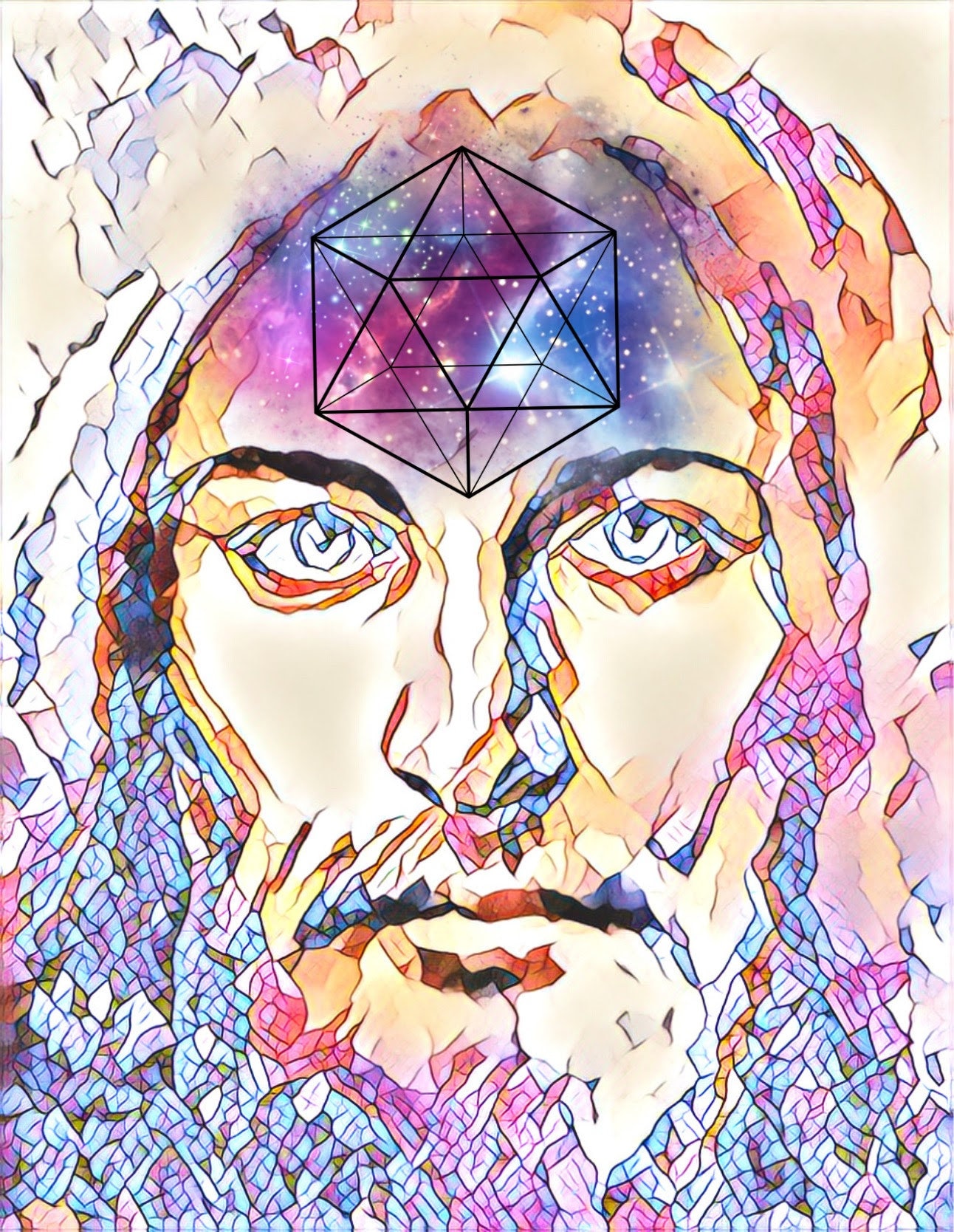
A TRANSFORMED VIEW OF CREATION
The first of these is the new perspective on creation, which, as we now know, began in deep time, around fourteen billion years ago. The history of the universe, from elementary quantum particles generated in the ‘big bang’ to the furthest reaches of space, is one single vast process, that is, one great story. The result is that we have moved from a human-centred view of creation, where we saw ourselves as Lords and Masters of a static world, to a cosmic awareness in which we are one part of a great unfolding story. Teilhard de Chardin writes:
“Humankind is not the centre of the universe, as we once thought in our simplicity, but something much more wonderful - the arrow pointing the way to the final unification of the world in terms of life. The human alone constitutes the last-born, the freshest, the most complicated, the most subtle of all the successive layers of life.” (1)

THE WHOLE GREATER THAN ITS PARTS
The beauty of this cosmic story is that it hangs together as a whole. We now realise that nothing or no one exists on its own. Creation is a Whole, and is greater than the sum of its parts. Moreover, this cosmic story is dynamic, in a continuous movement of development, known as evolution. Creation is on-going.
There is a basic oneness about the nature of reality itself: matter and energy are now seen as different forms of the same thing, and energy is a form of spirit. “Foundational to the quantum worldview is the perception that everything in creation is energy. It is all that is- and everything that is. Empty space is full of creative energy; the perceived emptiness is actually a fulness.“ (2)
The universe is actually a spiritual reality, and we no longer divide it into such categories as spiritual and material, sacred and secular, superior and inferior. All of creation is holy, and all our lives can be holy when lived in deep cooperation with the Whole.

THE CREATIVE BREATH OF THE HOLY SPIRIT
These advances in creation theology focus with new appreciation on the Holy Spirit, the creative Breath of God, who continually brings all things into being. We understand the Holy Spirit “as the primary manifestation of the divine in our earthly-human awareness, and as the first intuitive and mystical insight into the meaning of God.” (3) The great Holy Spirit has always breathed life into creation from the beginning of time, and the human calling is now seen as co-creating with the Spirit. “God does not so much make things as make them make themselves.” (4) The immanence of God in the world is being freshly appreciated, drawing us into deeper intimacy with the Divine Presence in all things. Pope Francis reminds us that “If the universe unfolds in God, who fills it completely … there is a mystical meaning to be found in a leaf, in a mountain trail, in a dewdrop, in a poor person’s face.” (5)

THE DEEP INCARNATION OF CHRIST
In this awesome perspective theologians are coming to describe the Christ event as ‘Deep Incarnation’. Jesus is not seen as coming to the universe ‘from outside’, as it were, but that, like every other life form, he too in his human nature emerges organically from nature’s deep time as a Homo Sapiens, made of star dust and fruit of aeons of development. The birth of Christ is the whole reason for the world to exist, and the growth of Christ is its business. In the words of Teilhard de Chardin:
“God did not will individually the sun, the earth, plants, or humanity. God willed His Christ. And in order to have Christ, God had to create the spiritual world and humanity in particular, upon which Christ might germinate. And to have humanity God had to launch the vast process of organic life which is an essential organ of the world. And the birth of that organic life called for the entire cosmic turbulence…” (6) A little later he continues “…Christ is so engrained in the visible world that Christ could henceforth be torn away from it only by rocking the foundations of the universe.” (7)
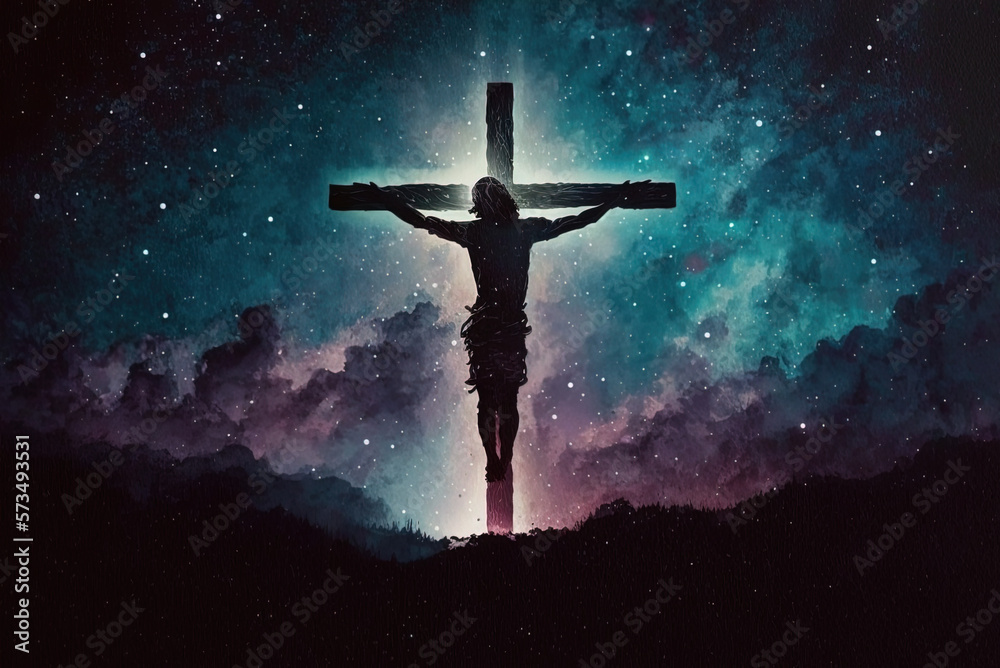
UNIVERSAL IMPERFECTION
In the new perspectives the understanding of ‘original sin’ morphs from being a once-off choice by an initial pair of humans that somehow blighted everyone, to the defective state of a species, a whole world still in formation, still unfinished. It can be seen as universal imperfection, or a slowness to make the effort to evolve further. In that view, the story of Adam and Eve illustrates our on-going reality: it is a portrait of human nature, of people still on their way to God, who do not want to listen to their conscience (‘voice of God’). Paradise lies up ahead at the term of our collective evolution, rather than lost behind us in an actual past history. “Evolution is a laborious process… of trying things out, so that disaster, pain, suffering and death necessarily go with it. In a world of this sort evil is no accident… It is an essential aspect of an evolutionary process which has to pick its way through a maze of errors and misplaced efforts. Since God willed to create a world that must grow to its completion via an evolution, imperfection and evil were bound to occur in this creation. It could not be otherwise.” (8)
IN WHAT SENSE A SAVIOUR?
Because evil is so endemic, the world stands in radical need of salvation. Salvation by Christ therefore also has cosmic dimensions. In this context ‘salvation’ means that humanity, individually and collectively, is brought on-course in the evolutionary journey, as opposed to getting derailed and failing to reach our fulfilment in God (Omega). Through incarnating in this world Jesus, the Divine Human, inevitably meets this shadow side of creation and, as we would expect him to, tackles it head on. However he does so in a totally counter-intuitive way. In him evil meets love and is defeated by it, the only energy capable of doing so.
John the Baptist had defined Jesus as the Lamb of God, -not the Lion, or the Bull, or the Eagle, but the Lamb, gentle and vulnerable. In his passion and death Jesus stands before us as God’s sign, the One sent by God, as he self-identified at his trial before the Sanhedrin and before the world. By accepting and suffering the cross we imposed on him, Jesus places Godself in the position to forgive sin, since to forgive something you must have suffered it. He thus restores the relationship between God and our repentant selves. As the Lamb who forgives the sins of the world Jesus makes evolution his cause and becomes its very soul, leading the human race forward through love towards a mysterious destiny. This will be when humanity finally unifies in love, focused on Omega-God. This process too is on-going. Repenting-forgiving love is what repairs the ever-breaking, ever-wounding, ever-falling Whole on its journey, and Jesus calls his followers in turn to channel this healing energy into life at all levels.
Relationality is key. In the new perspectives ‘sin’ is seen as letting down the Whole, in my/our patch of reality by damaging or breaking relationships in a multitude of ways. ‘Hell’ is the fact that there is nowhere good to go if a person breaks away from the Whole through serious unrepented wrongdoing. ‘Holiness’ is personal evolution into love, as individuals grow towards Omega. ‘Heaven’ begins now as we live love, sharing the mission of the Lamb.
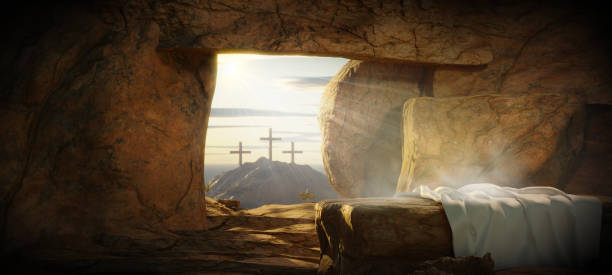
THE RESSURECTION OF CHRIST
The resurrection is God’s great sign, vindicating Jesus’ claim to be indeed the One sent by God, and the victory of love over evil. It shows that to love, repent and forgive are wisdom, not foolishness. In the risen flesh of Christ matter has become spiritualised, pointing to a future resurrection of all in Christ, when heaven and earth are drawn into union, the mysterious pleroma [fulness, completion]. “And I will raise them up on the last day.” (Jn 6, 52) This, then, will complete the unfinished story. So, with proper balance, the Christ event is seen not only as repairing broken relationships, but as leading this world towards its final fulfilment in a love that converges in Omega. “The essence of Christianity is nothing more or less than a belief in the world’s coming to be one in God, through the taking of human nature by Christ.” (9)

THE VERY HUMAN CHRIST
The Incarnation of Christ enacts the supreme meaning of the universe, and yet Jesus, the Divine Human, is not lost as an individual in this vast perspective. By living normally for ninety per cent of his short life, working for eighteen of his thirty-three years at his carpenter’s bench, Jesus is seen as endorsing our human vocation to build the earth through work. The new theology reclaims the complete life of Jesus, and not only his public life, because his whole life builds the Kingdom of God. Long in coming, we are now allowed to love the world, the Whole, as God’s creation, and to engage with it passionately in all walks of life as we seek to progress God’s Kingdom here on earth. The whole Church now fully recognises the dignity and holiness of the lay vocation to build this world according to Christ’s values, doing a good job. However, we do not forget that “If undertaken in pliant surrender, the pursuit of Christ in the world culminates logically in an impassioned enfolding, heavy with sorrow, in the arms of the Cross.” (10)
Dutch theologian N.M Wildiers writes, “It is precisely because we live in a world which is under construction that our labour takes on a new value and a capital importance. The human task coincides exactly with the duty to carry out the great work of evolution and guide it to completion… Teilhard urges us to go beyond every form of secularism by including the values of the earth in a Christocentric vision of the world.” (11)
The new theology also underpins the new worldwide ecological movement, a love-energy arising almost too late. In this way Christianity moves beyond spiritual individualism to collectively empower us to build a better world, as it is called to do. (In so doing, of course, we will find that ‘our souls have been saved’.) In the words of Teilhard:
“Eating, drinking, working, seeking; creating beauty, or truth, or happiness- all these things could have seemed to us just like varied activities… Now, directed towards the Super-Christ, the variety draws itself together. Like the countless shades that combine in nature to produce a single white light, so the infinite modes of action are fused, without being confused, into one single colour under the mighty power of the universal Christ. And it is love that heads this movement: love…the higher, universal and synthesised form of spiritual energy in which all the other energies of the soul are transformed and redirected, once they fall within the field of Omega. In that centre every activity is amorised. A super-humankind calls for a Super-Christ. A Super-Christ calls for a Super-Charity.” (12)
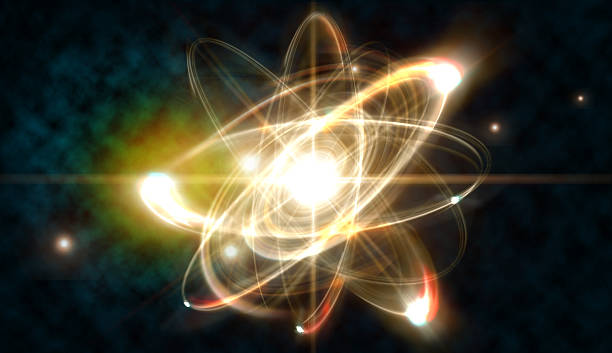
THE COSMIC EUCHARIST
Within the new perspectives our understanding of the Eucharist, centre of our faith, also grows naturally to cosmic dimensions. As Pope St John Paul writes,
” I have been able to celebrate Holy Mass in chapels built along mountain paths, on lakeshores and seacoasts… This varied scenario of celebrations of the Eucharist has given me a powerful experience of its universal and, so to speak, cosmic character. Yes, cosmic! Because even when it is celebrated on the humble altar of a country church, the Eucharist is always in some way celebrated on the altar of the world. It unites heaven and earth. It embraces and permeates all creation. The Son of God became man in order to restore all creation, in one supreme act of praise, to the One who made it from nothing.” (13)
Pope St John Paul might almost have been quoting from Teilhard’s Mass on the World, a text treasured by many, that par excellence celebrates its cosmic outreach into the whole of creation:
[After the consecration] “Once again the [divine] Fire has entered the Earth.
Without earthquake or thunderclap the Flame has lit up the whole world from within. All things are individually and collectively penetrated and flooded by it, from the inmost core of the tiniest atom……to the mighty sweep of the most universal laws of being…
In the new humanity which is begotten today the Word prolongs the unending act of his own birth. And through his immersion in the world’s womb……the great waters of the kingdom of matter have, without even a ripple, been endowed with life.
No visible tremor marks this transformation beyond words, and yet mysteriously and in all truth, at the touch of the super-substantial Word…the immense host that is the universe is made flesh through your own incarnation, my God. …We are all of us together carried in the one world-womb, …yet each of us is our own little microcosm in which the Incarnation is wrought independently, with degrees of intensity.” (14)
How inspiring and meaningful liturgical texts will be when they incorporate something of this new cosmic language! The universe itself will be made into an instrument resounding with the praise of Christ!
TOWARDS THE FUTURE
The new perspectives intuit, tentatively, the course of evolution as we hurtle towards the future faster than many of us would like. Despite living through two world wars (the first experienced at length as a stretcher-bearer on the front lines of battle), Teilhard continued to believe in the power of life to keep moving forward, a movement that would ultimately lead towards a unity of humankind. An ever-increasing convergence was the feature he highlighted, as, through technology, our minds grow ever closer together into a living, collective consciousness, both for better and also, as yet, for worse. “We are gathered here as one big tribe and earth is the tent we all live in,” said Morgan Freeman as he opened the Men’s Football World Cup in 2023. We must all learn to live together constructively or we will perish together.
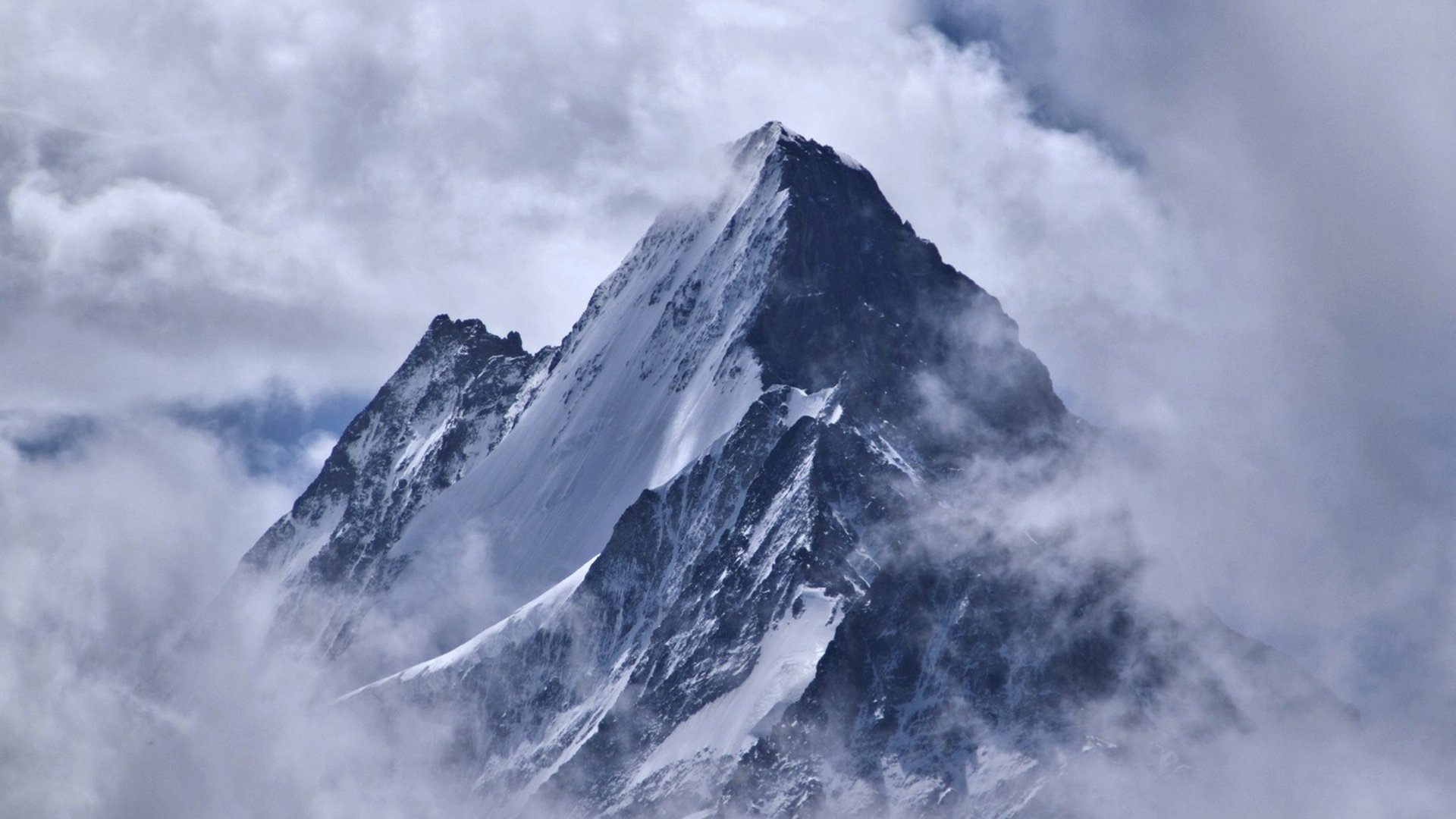
A goal is needed to energise us with hope. “The greatest event in the history of the earth, now taking place, may indeed be the gradual discovery, by those with eyes to see, not merely of Some Thing but of Some One at the peak of the evolving universe as it converges upon itself.” (15)
In other words, the Christian view sees the whole of history as an ascent of the world toward its fulfilment in Christ. This cosmic vision is classic St Paul:
“His purpose He set forth in Christ, as a plan for the fullness of time, to unite all things in Him, things in heaven and things on earth.” (Eph1:9-10)
NEWLY RELEVANT
As the Christian faith learns to accommodate these new cosmic perspectives, it finds itself regaining the relevance it has been gradually losing over the past three centuries. It sounds real! Most importantly, it invests the life of the laity with new dignity, holiness and purpose. They are building the values of Christ into the workings of this world, doing God’s will “on earth as it is in heaven.” The strength of this approach comes from its unified vision: God’s work is one, a single reality, and it generates a deeply holistic and refreshing spirituality. For Christians there is no longer any conflict between science as it reveals material reality, and faith in Christ, Alpha and Omega of everything. “A road is opening up: to make our way to heaven through earth…It [Christianity] is the very religion of evolution.” (16) This new story offers a horizon of hope for our troubled times.
This renewed faith needs to make its way into every place where ‘traditional’ (static, dualistic, individualistic, oblivious to the universe) Christian faith is celebrated, prayed, sung, preached, taught, explored and transmitted to others. There is a huge task of theological education to be done, a new ‘language’ to be learned, an evolutionary path to be trodden. At the same time, of course, a broad education in cosmology is needed to underpin it.
The strength gained from drawing these two visions of science and the Christian faith into a single worldview will be phenomenal for the Christian life! This faith can enable the Church to once more lead people of today and tomorrow into living as befits their responsibilities to the Divine Mystery, to each other and to the universe. To conclude with the words of Ilia Delio, of the Christogenesis Center for developing Teilhardian thinking: “If we can imagine a new wholeness emerging through science and religion and developing renewed institutional systems for human flourishing, then can we realise a new type of planetary community. The only way to predict the future is to create it, and the power to do so will come from those who are unbounded in love.” (17)
For more articles on Teilhard see: @teilharddechardinforall.com
:max_bytes(150000):strip_icc()/uk-france-night-2016-EARTH1116-2c03d786e8824e13ad10758aa8bd832f.jpg)
REFERENCES
(1) Teilhard de Chardin: The Phenomenon of Man, p 224, translated by Bernard wall. New York: Harper Perennial Modern Thought, 2008.
(2) Diarmuid O’Murchú, MSC, Doing Theology in an Evolutionary Way, p 12. Orbis Books, Maryknoll, NY. 2021.
(3) Ibid. p 95.
(4) T. de C., Towards the Future, p 125. Translated by René Hague, New York, Harcourt, 2002.
(5) Laudate Deum, 65.
(6) T.de C., Science and Christ, p 61, translated by René Hague, New York, Harper & Row, 1968.
(7) Ibid.., p 61.
(8) An Introduction to Teilhard de Chardin, N. M. Wildiers. P.143. Collins. Fontana Books, London and harper & Row, New York 1968.
(9) T.de C. L’Énergie Humaine, p 113 Oeuvres VI.
(10) T.de C. Writings in Time of War, p 61, Tr, René Hague, New York: Harper & Row, 1968.
(11) N. M. Wildiers in the Foreword to Christianity and Evolution, by Teilhard de Chardin, Orlando, new York, London, A Harvest Book, Harcourt Inc. First Harvest Edition 1974. P. 11, 13.
(12) T. de C., Science and Christ, p 170, translated by René Hague, New York, Harper & Row, 1968.
(13) Ecclesia de Eucharistia, April 17, 2003.
(14) T. de C., The Mass on the World, published in The Heart of Matter, p 123 translated by René Hague, A Harvest Book, Harcourt Inc. San Diego, New York, London.
(15) T. de C., The Future of Man, p 293 Translated by Norman Denny. Collins. Fontana Books, London and Harper and Row, New York, 1964.
(16) T. de C., Christianity and Evolution, p 93. Tr. R. Hague. A Harvest Book, Harcourt, Inc. Orlando, New York, London. 1974.
(17) Ilia Delio, 23 Dec 2023, on a promotional email for the Christogenesis centre in America.
